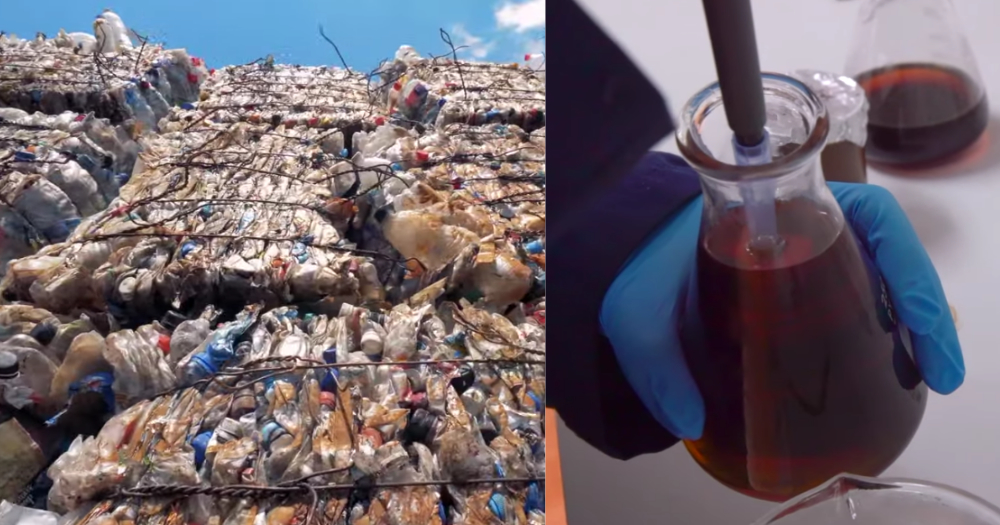The National Environment Agency (NEA) and Shell are conducting a joint study on the feasibility of chemically recycling plastic waste in Singapore.
In particular, the study will look into waste segregation facilities and plastic pyrolysis plants as part of Singapore's efforts to enhance its recycling capabilities, according to a joint press release on Oct. 16, 2020.
Understanding technical and commercial value in chemically recycling plastic waste
Pyrolysis is a chemical process of converting plastic waste into oil feedstock that can be fed to manufacture plastics and other industrial use.
Chemical recycling will enable contaminated plastics to be recovered from general waste, instead of incinerating the plastics along with other general waste.
The Chief Executive Officer of NEA, Tan Meng Dui said that the joint study with Shell will help NEA gain a better understanding of the technical and commercial aspects of a chemical recycling value chain in Singapore.
This study will complement NEA's study on the feasibility to develop a pilot Plastic Recovery Facility (PRF) in Singapore.
The study also demonstrates Shell's aim to transit their business to become a "more sustainable and circular" one, Aw Kah Peng, Chairman of Shell Companies in Singapore said.
Shell announced in 2019 that it aimed to use one million tonnes of plastic waste a year as feedstock in its Global chemical plants by 2025.
Since November 2019, its Shell Norco facility in Louisiana in the U.S. has started using pyrolysis to convert plastic waste to feedstock which can be used to produce everyday products such as furniture and appliances as well.
&
Totally unrelated but follow and listen to our podcast here
Top image via screenshots of Shell YouTube video.
If you like what you read, follow us on Facebook, Instagram, Twitter and Telegram to get the latest updates.
